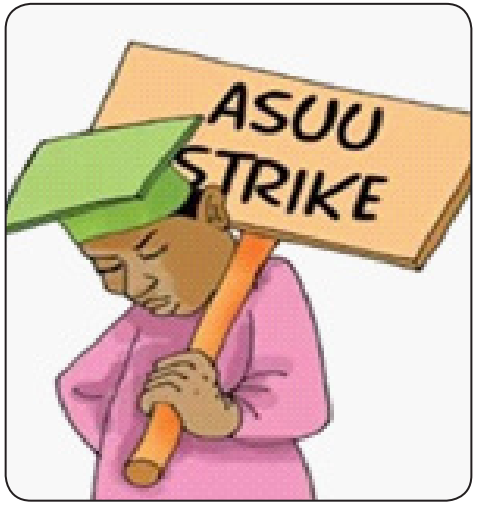THE Academic Staff Union of Universities (ASUU) has warned that a nationwide strike may become unavoidable, accusing the Federal Government of adopting a lacklustre and obstructive approach to resolving its long-standing industrial dispute.
Speaking at Ladoke Akintola University of Technology (LAUTECH), Ogbomoso, the Coordinator of ASUU’s Ibadan Zone, Prof Biodun Olaniran, said government officials had been “feeding the public with false narratives” while stalling the renegotiation of the 2009 FGN–ASUU Agreement.
He noted that the union’s primary demand remained the renegotiation of the 2009 agreement by the Alhaji Yayale Ahmed–led committee, which was expected to propose a new salary structure to replace the Consolidated University Salary Scale (CONUASS), given the country’s persistent inflationary pressures.
ASUU declared a two-week warning strike on October 13, 2025, but suspended the action five days before its expiry, following what the union described as genuine interventions from students, parents, the Nigerian Labour Congress (NLC), the media, and other stakeholders.
The union subsequently granted a one-month window, aligned with the NLC’s ultimatum, for the government to conclude the renegotiation and resolve all pending issues.
The Ibadan Zone includes the University of Ibadan, University of Ilorin, LAUTECH, Osun State University, Kwara State University, and Emmanuel Alayande University of Education.
Addressing journalists alongside other Zonal Chairmen, Professor Olaniran said ASUU had expected a government focused on national development and technological growth to act swiftly, but instead witnessed “misinformation, disinformation, and propaganda” characterising the process, despite only eight days remaining before the union’s deadline lapses.
He acknowledged the release of part of the four-year promotion arrears and certain third-party deductions, including union dues, cooperative contributions, and pension remittances, but stressed that these gestures “should not be misconstrued as a resolution of ASUU’s demands”.
According to him, ASUU’s National Executive Council (NEC), which met at Taraba State University on November 8 and 9, reviewed the union’s engagement with both federal and state authorities and expressed concern over rising insecurity, economic hardship, and the deteriorating welfare of academic staff.
Prof Olaniran criticised the conduct of some government officials involved in the renegotiation, warning that unless the government offers a competitive salary structure within the remaining timeframe, students in public universities may face yet another disruption to the academic calendar.
He urged stakeholders to intervene to prevent an avoidable crisis.
The ASUU coordinator further revealed that the counter-offers presented by the government through the Yayale Ahmed Committee were rejected by the union on grounds that they were “inappropriate and unacceptable”.
He lamented that academics have remained on the same salary structure for 16 years, while peers in other West African countries earn significantly higher wages, even as Nigerian politicians “remain among the highest-paid globally”. He argued that the challenge is not a lack of resources but a lack of political will to adequately fund quality education.
Olaniran added that three-and-a-half months’ salaries withheld from ASUU members in federal universities following the 2022 strike remain unpaid. Many state universities, he said, have also failed to release withheld salaries, promotion arrears, and Earned Academic Allowances (EAA).
He listed Osun State University, which has yet to pay salaries withheld in 2018 and 2020 or release arrears of the reduced 2015–2019 EAA, as well as LAUTECH and KWASU, where EAA and promotion arrears remain outstanding.
He described these actions as “indifferent, anti-progress, anti-labour, and inhumane”, demanding the unconditional payment of all withheld salaries, promotion arrears, and outstanding EAAs to ASUU members.


